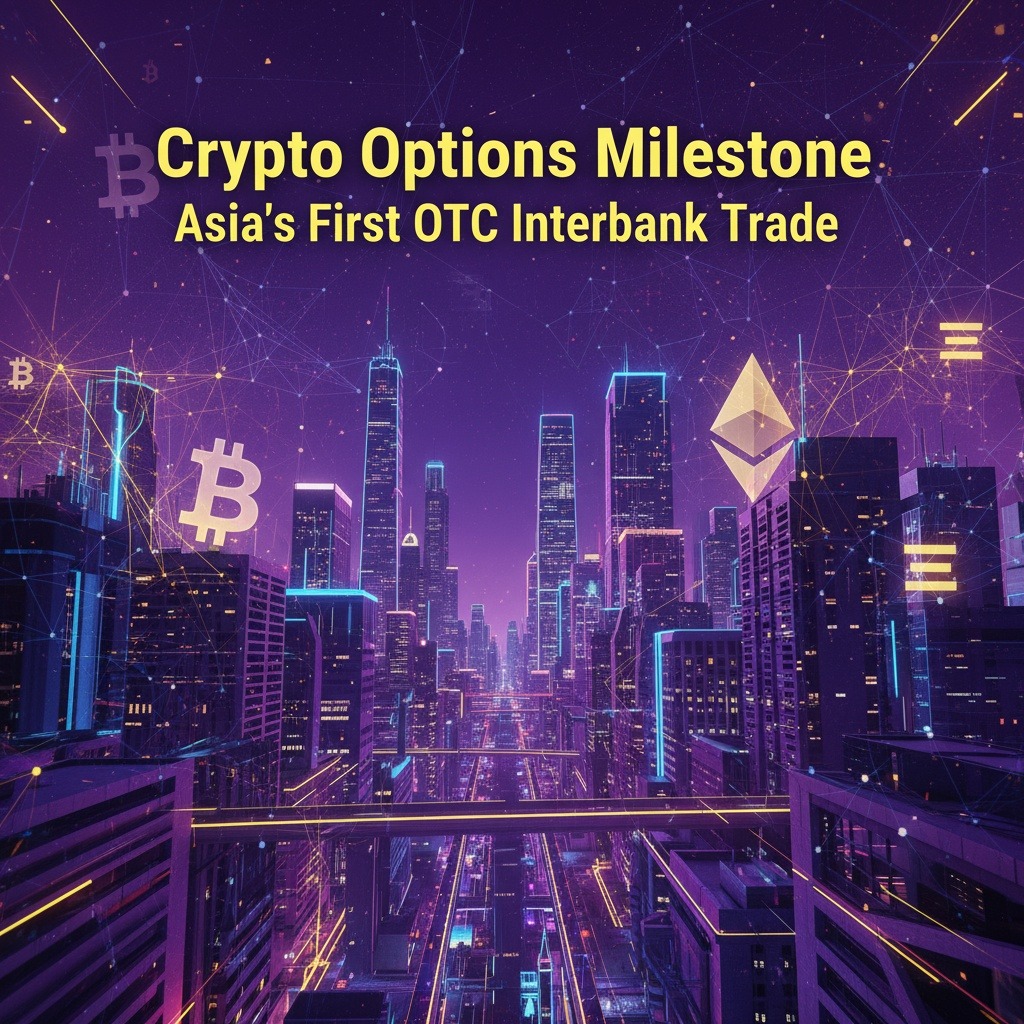DBS and Goldman Sachs have jointly executed the inaugural over-the-counter (OTC) cryptocurrency options trade between banks, marking a significant advancement in integrating digital assets within Asia’s institutional finance sector.
The transaction centered around cash-settled options on bitcoin (BTC) and ether (ETH), enabling both institutions to manage risk exposure linked to crypto-related products. This groundbreaking move introduces a familiar risk management approach — previously common in traditional finance — into the digital asset ecosystem.
Specifically, the deal involved options contracts on bitcoin, priced around $113,421, and ether, priced approximately at $4,028, according to the participating banks. These options grant the holders the right, but not the obligation, to buy or sell the underlying cryptocurrency at a set price within a certain timeframe, offering a structured mechanism for hedging.
The milestone coincides with a rapidly growing appetite for digital asset derivatives. DBS reported that its clients executed over $1 billion worth of crypto options and structured note trades in the first half of 2025 alone. Between the first and second quarters, trading volumes surged by nearly 60%, highlighting expanding institutional engagement in this space.
Jacky Tai, head of trading and structuring at DBS in Singapore, commented on the transaction’s significance, stating, “Professional investors are looking for trusted and well-regulated platforms to develop their digital asset portfolios. Collaborations like our trade with Goldman Sachs demonstrate how banks can leverage strong credit profiles and advanced structuring capabilities to bring established financial practices to digital markets.”
Goldman Sachs, an early adopter in offering crypto derivatives to institutional clients, described the trade as indicative of a maturing market. Max Minton, head of digital assets for Asia Pacific at Goldman Sachs, explained, “This deal represents the emergence of an interbank market for cash-settled OTC cryptocurrency options. We anticipate that activity in this sector will continue to rise as institutional investors increase their participation.”
The transaction highlights a broader trend of regulated banks integrating traditional financial instruments such as options, swaps, and structured notes into their crypto offerings. By doing so, they help bridge conventional capital markets and the evolving digital asset landscape.
As more institutional players incorporate these sophisticated hedging tools, Asia’s digital assets market appears positioned to evolve in step with global financial markets, emphasizing robust risk management and liquidity standards familiar to seasoned investors.



